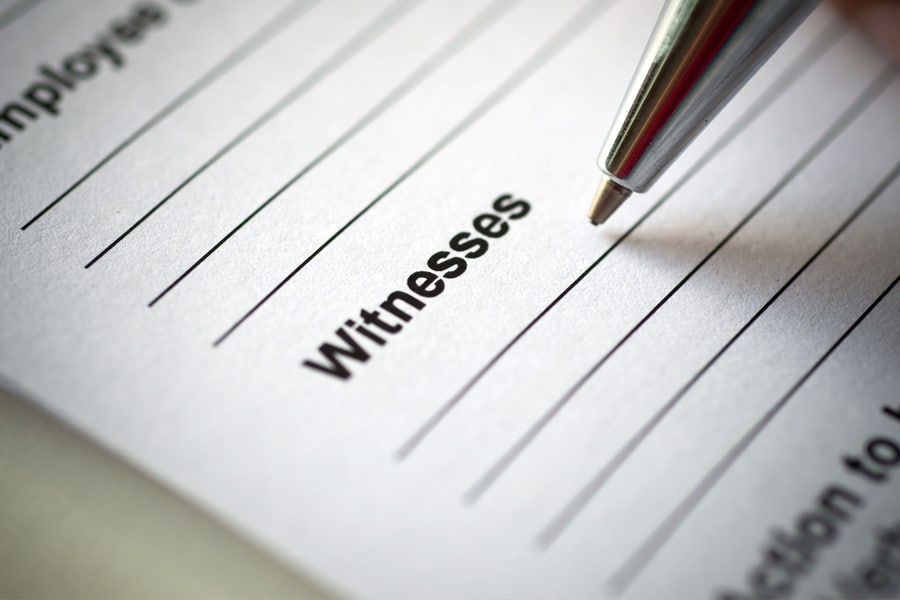There are requirements which must be met to validate a will and ensure the document is enforceable after someone, called the decedent, passes away. One such requirement in the state of Arizona is having two witnesses to the signing of the document.
While witnesses are not the only way a will becomes valid in Arizona, it is by far the most common route. Below is a quick guide on what a witness does, who can become one, and what may be done in cases where the will was not officially winessed.
What is a Witness?
The task of a witness is to, quite literally, bear witness to an event. In the context of a will, the witness must view the signing of the document and attest that the signature took place.
Who Can Serve as Witness?
Not just anyone can serve as a witness to a will. There are various requirements and precautions to keep in mind when selecting witnesses, such as:
- Age: and Arizona witness must be 18 years of age or older
- Mental Capacity: the witness must be of sound mind
- The Number of Witnesses: an Arizona will must have two witnesses to the testator’s (the will writer) signature
- Serving Capacity: if serving as witness, you cannot also be a Beneficiary of the Will
The Handwritten Will
Arizona recognizes handwritten wills, or “holographic wills,” as legally binding.
Handwritten wills do not require witnesses or a notary. In fact, use of witnesses or a notary will invalidate a handwritten will.
Holographic wills still require the testator to meet several criteria of validation:
- Be of sound mind
- Put the referenced assets and material provisions in the handwriting of the testator
- Have the testator’s signature on the document along with the date.
These criteria aim to protect the testator’s will from potential forgery. For instance, a holographic will that has a partially typed list of assets for distribution can no longer be valid. Thus, unless the testator is incredibly careful to follow all the statutory requirements of creating a will, the entire document could be rendered useless after the testator’s death.
Probate and Non Probate Assets
Generally speaking, there are two types of assets: probate and non-probate.
Probate assets are those which were owned by the decedent and no one else. This gives the Court jurisdiction to distribute these assets in accordance with state-specific succession laws.
Non-probate assets are those which the decedent either owned jointly with another party with right of survivorship, were named as part of an existing trust, and/or have beneficiaries designated. More information on the right of survivorship can be found here.
Intestate Succession Laws
In some cases, a last will does not exist at all. For these situations, the person who died is said to have died “intestate”. If someone dies intestate, with more than $75,000 in personal assets and/or more than $100,000 equity in real estate, and no beneficiary designations of those assets, that person’s estate will go through probate. All of the assets will be considered probate assets.
Literature of the Law
The Arizona law which governs all the above is known as Title 14. Additional information on various aspects can be found by following the links below:
- Who can make a will
- Execution and witnessing
- Holographic wills
- Sample forms for self-proven wills
- Witness requirements
While it is beneficial to be versed on the laws behind a will, nothing can replace the years of legal experience and understanding brought by an experienced estate planning attorney. Oftentimes it saves time and is financially wiser to work with an attorney on creating and interpreting legal documentation from the beginning, rather than not having a full understanding of the legal requirements and therefore creating a more complicated problem down the road.

